The Iron Heel
The Iron Heel is an early dystopian novel by Jack London that depicts the rise of a tyrannical oligarchy in America. The story is narrated in the first person through the journal entries of the wife of a key leader in the resistance movement against the oligarchy. Her journal is read many centuries later, accompanied by annotations and commentary from a future reader. The book embodies many of London's own socialist views and is often considered one of the earliest examples of the modern dystopian genre.
Hardcover. First Edition, First Printing. Octavo pictorial binding stamped in light blue and gold (sunshine); gilt lettering on spine; xiv, 354pp., plus 4pp. of ads. Scarcer variant issue which apparently coincided with the MacMillan edition. Girard, KS: Appeal to Reason, 1908. BAL 11908. #10285.
Very good copy with light rubbing to bottom edge and corners (also bumped). Previous owner stamp inside.

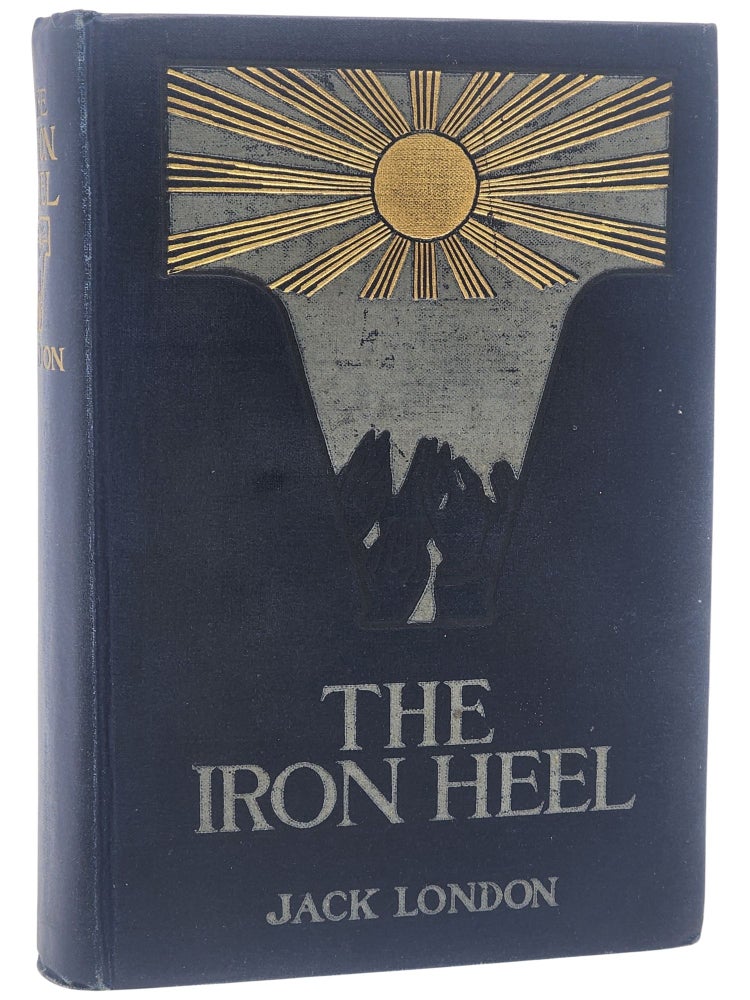
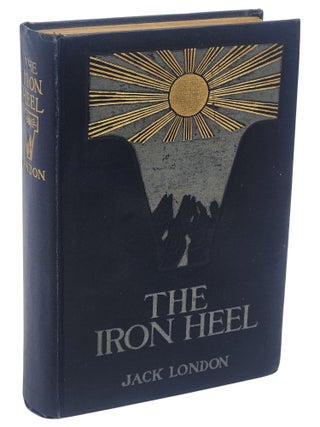
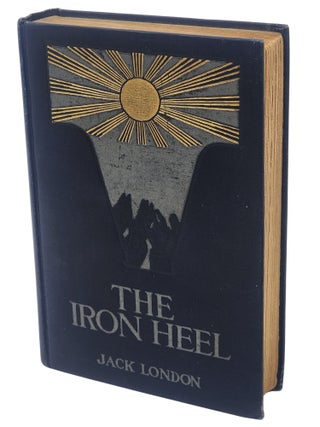

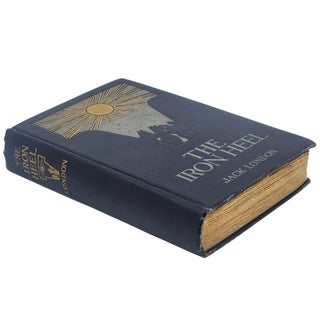
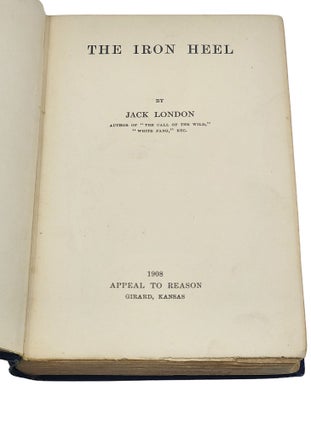
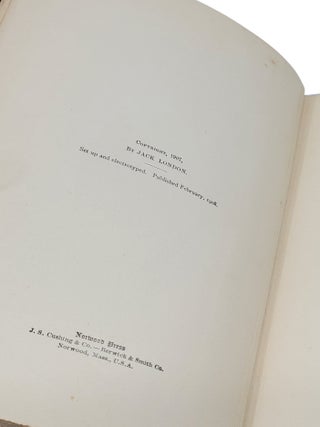
Jack London's 1908 novel The Iron Heel envisions an America gripped by class conflict, wherein the rise of a socialist mass movement threatens the ruling class. This dystopian backdrop isn't unfounded; the U.S. saw intensified labor activity from the late 19th to the early 20th century. While labor militancy surged, it was often channeled into the Democratic Party rather than a radical socialist one. Globally, London's speculative scenario played out in parts of Europe, but inversely; while he imagined oligarchic tyranny in English-speaking nations, it was Nazi Germany that adopted a similar vision.
Narrated through a centuries-old manuscript by Avis Everhard, The Iron Heel chronicles the rise of a tyrannical oligarchy in the U.S. The narrative combines Avis's firsthand experiences, from her initial skepticism of socialist ideas to her conversion after witnessing worker exploitation, and annotations from a scholar named Anthony Meredith from the future. The tale spans 1912-1932, capturing international events and regional alliances. While the protagonists envisage an impending successful revolt, the future annotations reveal a tragic three-century delay.
London's predictive prowess deviated from actual history. He accurately gauged rising international tensions but misread labor solidarity's global impact. His belief in the Socialist Party's rise in the U.S. was rooted in the prediction of a diminishing middle class, but progressive reforms and prosperity countered this. London's Marxist inclinations, echoing the idea of historical materialism, resonate through the text. Despite its profound themes, The Iron Heel was met with a lukewarm reception upon its release, deemed unconvincing by some critics.
The Iron Heel left an indelible mark on dystopian literature, though. George Orwell, in particular, recognized London's foreshadowing of the rise of Fascism. Orwell's Nineteen Eighty-Four mirrored aspects of The Iron Heel, especially in the diary motif of its protagonist, Winston Smith. Adaptations of London's work have surfaced over the years, with two Russian films and a New York stage play in 2016 that was later transformed into an audio drama podcast.